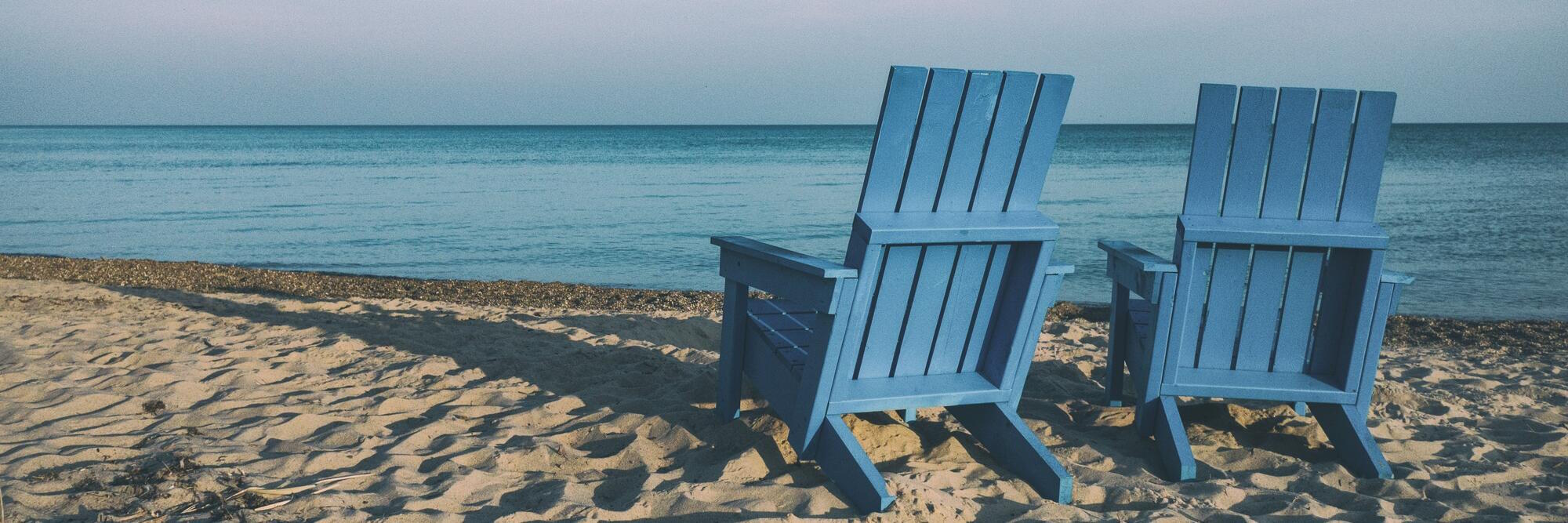Dreaming of living out your golden years on a sun-drenched island or in a laid-back country village? The allure of retiring abroad has never been stronger. With an array of countries rolling out red carpets for retirees through special visa programmes, the dream of an idyllic overseas retirement is not just attainable but also more enticing than ever.
This guide dives deep into the heart of some of the most coveted retirement destinations, handpicked for their unique blend of affordability, pleasing climates, world-class healthcare, and the promise of a comfortable, enriching lifestyle.
Our top retirement destinations:
Retiring in Thailand
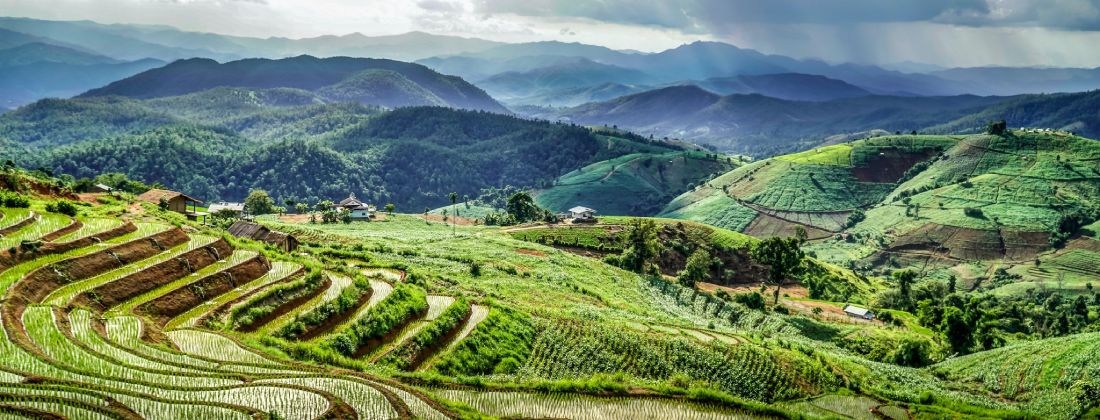
With a friendly local population, a fascinating culture and ample beautiful scenery, Thailand remains a popular retirement destination. Local cuisine is diverse and flavourful, and there's even a local wine industry. Retirees looking to do some travelling will also find that Thailand is a perfect base from which to explore Southeast Asia.
The country's blend of modern amenities and rich cultural tapestry offers a unique living experience. From bustling markets to serene temples, retirees can immerse themselves in a lifestyle that balances relaxation and adventure.
Climate
Thailand's climate is predominantly tropical, offering warm temperatures throughout the year. The country experiences three main seasons:
- The cool season from November to February offers pleasant weather, especially in the northern regions.
- The hot season from March to June can see temperatures soaring, particularly in urban areas.
- The rainy season from July to October brings intermittent downpours, but these rarely hinder daily activities and often provide a refreshing respite from the heat.
Cost of living
The cost of living in Thailand is extremely affordable, and foreign currencies such as the US dollar and the euro go far here. Living in small countryside towns or on one of the country's many island communities will stretch money even further, but even living in large cities like Bangkok is easily affordable thanks to the favourable exchange rate.
Accommodation
Accommodation options in Thailand cater for a wide range of preferences and budgets. Whether one prefers the vibrant city life of Bangkok, the serene beaches of Phuket or the cultural richness of Chiang Mai, there is something for everyone. From affordable apartments to luxury villas, the housing market in Thailand offers diversity and value.
Many expats choose to rent properties instead of buying at first, taking advantage of flexible lease terms and the opportunity to explore different areas before settling down.
Healthcare
Healthcare in Thailand is renowned for its high standards and affordability. The country boasts well-equipped hospitals and clinics, many of which offer services by English-speaking staff.
Healthcare costs are lower than in many Western nations, but retirees should still secure comprehensive health insurance.
Visas
The Non-Immigrant Visa O-A (Long Stay) is Thailand's retirement visa, available to foreigners aged 50 and up. Applicants must show adequate funds in a Thai bank account and must undergo a health examination.
Retirement visas are valid for a period of one year and can be renewed indefinitely as long as the visa holder continues to meet the requirements.
Retiring in Panama
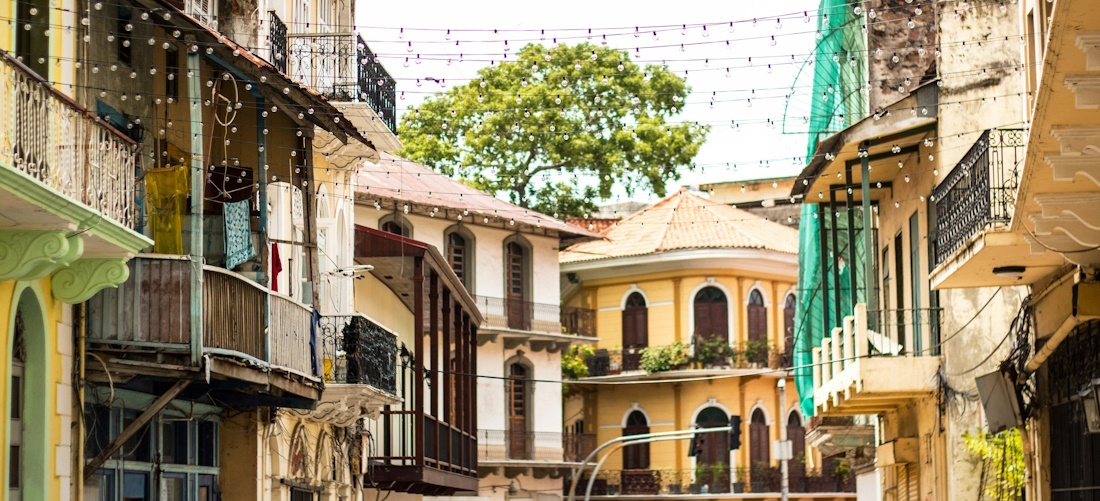
Panama is renowned for its high quality of life, especially appealing to expat retirees with a blend of modern amenities and natural beauty coupled with a vibrant cultural scene. The country's advanced infrastructure, including high-speed internet and reliable healthcare, complements the serene beaches, lush rainforests and bustling city life.
The social life in Panama is also a significant draw. Expats often find it easy to integrate into local communities, and there are numerous expat groups and clubs that facilitate socialising and activities. English is widely spoken in Panama, particularly in urban areas. Many Panamanians, especially those in the service industry, are bilingual, and the presence of a large expat community means that English is commonly used in social settings.
Climate
Panama's tropical climate is a major attraction for retirees. The warm weather throughout the year means outdoor activities are always an option. From leisurely beach walks to more adventurous rainforest exploration, the climate supports an active lifestyle.
Cost of living
The cost of living in Panama is one of its most attractive features for retirees. Daily expenses, from groceries to leisure activities, are generally more affordable than in many Western countries. The lower cost of living is particularly beneficial for those relying on fixed incomes such as pensions.
In addition, the Pensionado programme's discounts on various services, including entertainment and transportation, contribute significantly to reducing monthly expenditures, enabling retirees to make the most of their finances.
Accommodation
Accommodation in Panama caters for a range of preferences and budgets. From modern apartments in Panama City to serene beachfront properties and tranquil mountain retreats, there is something for every retiree.
The property market is diverse, offering both rental and purchase options, and the costs are generally lower compared to similar properties in North America and Europe.
Healthcare
Panama's healthcare system is a blend of public and private facilities, known for its high standards and affordability. The presence of skilled healthcare professionals, including English-speaking staff in major cities and private hospitals, ensures quality medical care.
Many retirees find the cost of healthcare in Panama to be significantly lower than in their home countries without compromising on quality. Access to healthcare is enhanced by the Pensionado programme, which often includes healthcare discounts.
Visas
The Pensionado visa programme is a key attraction for expat retirees. Its straightforward application process and the range of benefits it offers, including discounts and tax exemptions, make it an excellent option for those looking to retire in Panama.
The visa not only allows retirees to reside permanently in Panama but also integrates them into the local community, offering a sense of belonging and ease of living that is highly valued by expats. The financial thresholds for the visa are designed to be attainable, ensuring that a comfortable retirement in Panama is accessible to many.
Retiring in Costa Rica

Retiring in Costa Rica offers a unique blend of tranquillity and vibrant culture. The country's commitment to environmental conservation ensures retirees enjoy pristine natural settings, ranging from beaches to rainforests.
Moreover, the community-oriented culture in Costa Rica fosters a sense of belonging and involvement, especially in smaller towns and villages where social interactions are a daily occurrence. The emphasis on a balanced lifestyle, encapsulated in the local philosophy of la pura vida, encourages a slower, more mindful way of living.
For English-speaking retirees, Costa Rica presents a comfortable environment with its widespread use of English, particularly in tourist areas, larger cities and expat communities. Many locals, especially the younger generation, speak English fluently, and a large and growing expat community ensures that English-speaking retirees have access to a network of peers who share a common language and cultural background.
Climate
Costa Rica's climate is a major draw for retirees, offering a range of climatic options to suit different preferences. The Central Valley, popular among retirees, boasts a temperate climate with mild temperatures year-round, often referred to as 'eternal spring'. Coastal areas offer warmer, tropical conditions, perfect for those who prefer beachside living.
The country enjoys a tropical climate with two main seasons: the dry season and the rainy season. The dry season, from December to April, features sunny days and clear skies, ideal for outdoor activities and beach visits. During the rainy season, from May to November, the landscape is lush and green, with rain typically occurring in the afternoons or evenings.
Cost of living
The cost of living in Costa Rica is one of its most attractive features for retirees. While it varies depending on lifestyle and location, it generally remains more affordable than in many Western countries.
Essentials such as groceries, utilities, and public transport are reasonably priced. Local markets offer fresh produce at lower costs, and the availability of local brands and products in supermarkets helps in maintaining a budget-friendly lifestyle. Dining out and entertainment options are plentiful and can fit a range of budgets, from affordable local eateries to more upscale restaurants.
Accommodation
Accommodation options in Costa Rica cater for a wide range of preferences and budgets. From modern apartments in bustling cities to tranquil beachfront properties or serene mountain retreats, the choices are diverse.
Rentals are popular among retirees, offering flexibility and a lower financial commitment compared to buying property. Rental costs vary by location and property type, with more affordable options available in smaller towns and rural areas.
For those interested in purchasing property, the real estate market in Costa Rica is welcoming to foreigners, with no major restrictions on ownership. Property prices are generally lower than in many Western countries, and the process of buying property is straightforward.
Healthcare
Costa Rica's healthcare system is renowned for its high quality and affordability. The public healthcare system, known as Caja, offers comprehensive coverage at a reasonable cost, and expats who are legal residents can join this system. The quality of care in public hospitals is generally good, with well-trained medical staff and modern facilities in major cities.
For those seeking more personalised care or shorter waiting times, private healthcare is an excellent option, with several top-notch private hospitals and clinics available, especially in San José and other major cities. Private healthcare costs are lower compared to the US and many European countries.
Visas
Costa Rica's retirement visa, the Pensionado programme, is specifically designed to make retiring in the country straightforward for expats. The process involves proving a regular pension income and committing to spend a certain amount of time in the country. This visa is renewable, ensuring long-term stability for retirees.
In addition to the Pensionado, there are other residency options available, such as the Rentista visa for those with a fixed income from investments. The Costa Rican government has also streamlined the residency application process.
Retiring in Portugal
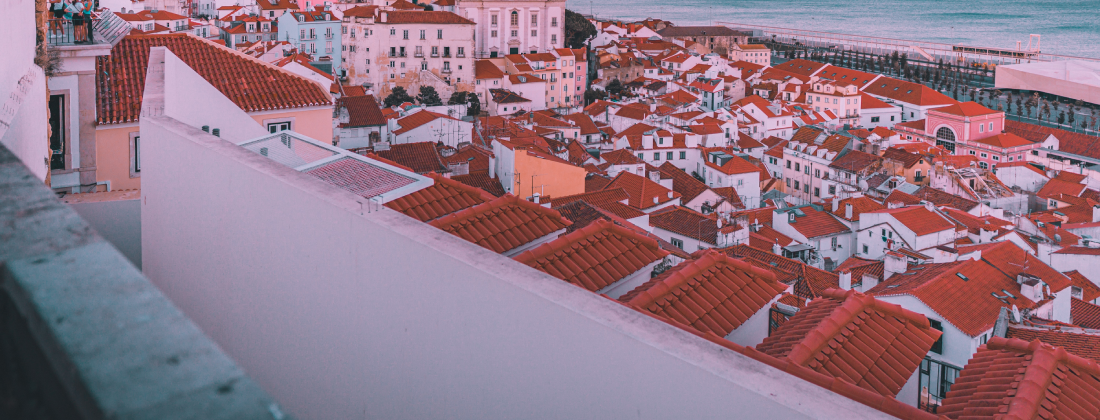
Portuguese culture is vibrant and colourful, and locals are friendly and helpful, especially if you make the effort to speak some Portuguese. As a coastal country, Portugal produces wonderfully fresh seafood and is also known for its wine. The country is also wonderfully situated, making for easy travel around Europe. The country is also known for its low crime rates and peaceful lifestyle.
Portugal's expat communities, particularly in popular areas like the Algarve, Lisbon and Porto, have a substantial English-speaking population, making it easier for expat retirees to settle in, form social networks and navigate day-to-day activities. English is also commonly spoken in tourist areas and is generally understood in healthcare settings.
Climate
Portugal's climate is one of its most attractive features for retirees. The Algarve region, in particular, boasts more than 300 days of sunshine per year, providing a sunny and warm environment ideal for outdoor activities and leisure. The mild winters across the country ensure that outdoor activities can be enjoyed year-round.
The varying regional climates, from the cooler, green landscapes of the north to the warmer, drier south, offer options for different preferences.
Cost of living
Portugal has a fairly low cost of living, especially compared to the rest of Europe. Major cities such as Lisbon and Porto can be on the pricey side, so retirees tend to favour areas off the beaten track, like the Algarve and other small towns in the countryside.
Everyday expenses, including groceries, dining out and public transport, are reasonably priced, offering a comfortable lifestyle on a modest budget. Retirees often find that they can afford a higher standard of living in Portugal than in their home countries, with access to affordable leisure activities, dining and cultural experiences.
Accommodation
The property market in Portugal provides a wide range of options for retirees, from traditional apartments in urban areas to villas in more rural settings. Prices for buying and renting vary significantly based on the location and type of property, with more affordable options available outside the major cities.
Additionally, the process of renting or buying property in Portugal is straightforward for foreigners, with many real estate agents and services catering specifically for expat needs.
Healthcare
Access to healthcare is a critical consideration for retirees, and Portugal offers a high standard of care. The national healthcare system is well regarded, and many healthcare professionals speak English, which is comforting for expats.
Many expats opt for private health insurance to complement the public healthcare system, ensuring comprehensive coverage.
Visas
There are two main visa options for those looking to retire in Portugal.
- Many retirees opt for the D7 Passive Income Visa. The applicant must have access to adequate funds to support themselves. Monthly payouts must be equal to at least the minimum wage. You’re allowed to earn money over and above this amount by working.
- The Golden Visa is for expats who purchase property in Portugal to the value of at least EUR 600,000. On this visa, most foreign income (including pensions) is untaxed. After five years on a Golden or D7 Visa, you’re eligible for permanent residency and citizenship.
The simplicity of the visa application process for retirees is a significant factor in Portugal's popularity among expat retirees.
Retiring in Mexico
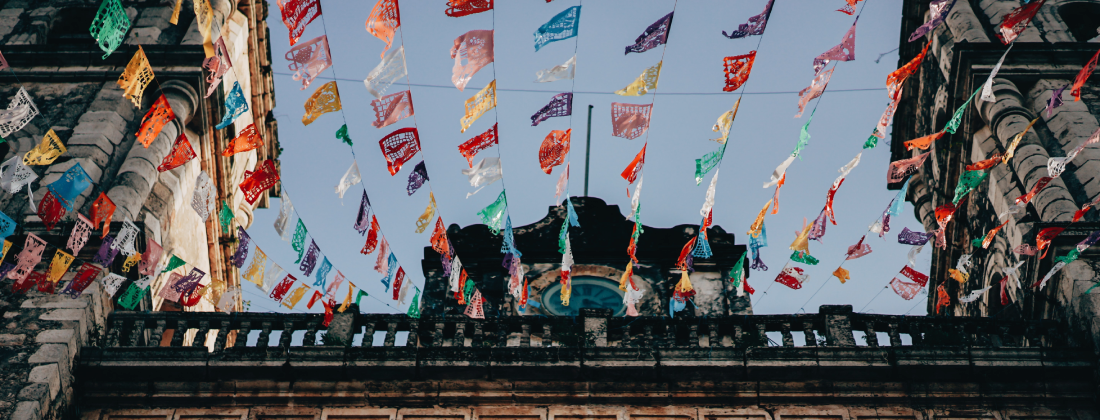
Mexico is especially popular with retirees from the US, who enjoy the country's proximity to home. But there's plenty for other expats to enjoy here too. Mexico's pleasant climate and flavourful local cuisine are both major drawcards, not to mention the country's strategic position as a jumping-off point for travel to the Caribbean and Central and South America. Retirees in Mexico enjoy a vibrant cultural scene, with access to numerous historical sites, art galleries and cultural festivals.
One of the appealing aspects for retirees in Mexico is the prevalence of English-speaking communities, especially in popular expat areas. Many locals in these areas also have a good grasp of English, making daily interactions and transactions more convenient for expats.
Climate
Mexico's varied climate means retirees can choose a region that best suits their preferences. For those who love warm weather, the coastal areas offer year-round sunshine. In contrast, the highland regions provide a cooler climate, ideal for those seeking relief from extreme heat.
Cost of living
A favourable exchange rate with major currencies such as the US dollar means that the cost of living in Mexico is particularly friendly on the pocket. When it comes to real estate, buyers tend to get much more bang for their buck than back home.
Expats will want to opt for private healthcare in Mexico, so health insurance is an essential expense. Luckily, there are plenty of companies offering comprehensive yet affordable health insurance policies in Mexico.
Accommodation
Retirees in Mexico have a wide range of accommodation options, from modern apartments in bustling cities to tranquil homes in rural areas. The real estate market caters for various budgets, ensuring there's something for everyone. For those interested in renting, the market offers both short-term and long-term options.
Healthcare
The healthcare system in Mexico is known for its quality and affordability. With a range of public and private healthcare facilities, retirees have access to excellent medical care. Private healthcare, in particular, is renowned for its high standards and modern facilities.
Visas
Mexico is welcoming to retirees, and obtaining the right visa is a fairly straightforward process. To get a temporary or permanent resident permit for Mexico, the applicant must be able to prove financial stability, either through proof of monthly pension income or in the form of assets like property in Mexico.
The level of income required is lower for a temporary resident permit than for a permanent one. Temporary resident permits have a four-year validity period and can be renewed. It's also fairly easy to transfer from temporary to permanent residency status as long as income requirements are met.
Retiring in Malaysia
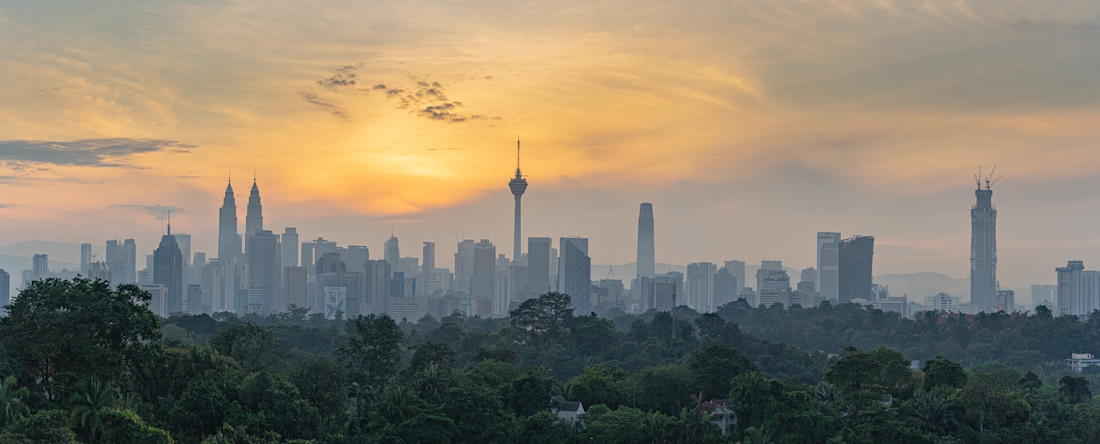
Malaysia offers a compelling blend of modern amenities and rich cultural heritage, creating a unique environment for retirees. With its well-developed infrastructure, retirees enjoy convenient access to shopping centres, restaurants and entertainment options.
The balance of urban development and natural beauty, including stunning beaches and lush rainforests, contributes to a high quality of life. Additionally, the relatively low crime rate in major expat areas ensures a safe living environment.
One of the standout conveniences for retirees in Malaysia is the widespread use of English. Due to Malaysia's history as a former British colony, English is commonly spoken, particularly in urban areas and among the younger population. Important documents, road signs and government services are often available in English.
Climate
The tropical climate in Malaysia offers year-round warmth, with temperatures consistently hovering around the mid-20s to low 30s degrees Celsius. This warm weather is ideal for those who enjoy outdoor activities and a sunnier climate.
While the humidity and heat can be intense, especially during the mid-year months, most residential and commercial buildings are equipped with air conditioning, providing necessary respite. The regular rainfall, particularly during the monsoon season, brings cooler temperatures and lush greenery, adding to the country's natural beauty.
Cost of living
Retirees in Malaysia benefit from a cost of living that is noticeably lower than in many Western countries. Everyday expenses like groceries, public transport and dining out are generally affordable, meaning that retirees can often afford luxuries and services that would be more costly in their home countries, such as hiring domestic help.
Accommodation
Housing options in Malaysia cater for a range of preferences and budgets, from luxurious condominiums to more modest apartments. In popular expat areas, housing is designed with modern amenities and comfort in mind, often featuring facilities such as swimming pools, gyms and security services. The affordability of real estate compared to Western countries means retirees can enjoy a higher standard of living.
For those interested in purchasing property, Malaysia offers relatively straightforward procedures for foreign buyers, with certain restrictions in place. Renting is also a popular option, providing flexibility and the opportunity to explore different areas before committing to a purchase.
Healthcare
Healthcare in Malaysia is characterised by its high quality and affordability. The country boasts a mix of public and private healthcare facilities, with private hospitals offering state-of-the-art equipment and English-speaking staff.
Routine medical care and specialist consultations are reasonably priced, and many healthcare professionals in Malaysia have trained internationally.
Visas
The Malaysia My Second Home (MM2H) programme is an attractive option for retirees, offering a long-term visa that simplifies the process of settling in Malaysia. This programme is specifically designed to accommodate the needs of retirees, ensuring a straightforward and hassle-free experience in obtaining residency.
The MM2H visa is renewable and provides a stable legal status, allowing retirees to plan for the long term. The programme's requirements are tailored to ensure that applicants have sufficient financial means to support themselves without working, contributing to its success and popularity among expat retirees.

